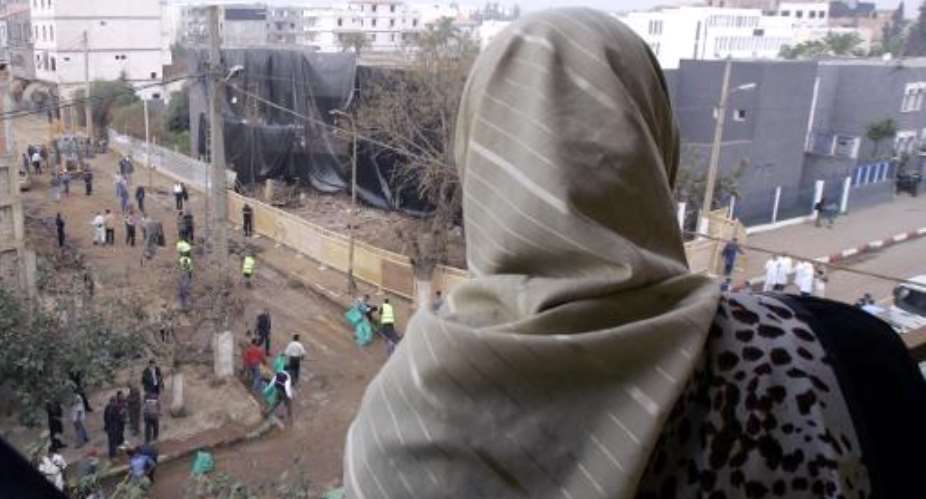Algiers (AFP) - Algeria's parliament passed a law Thursday criminalising domestic violence against women in a vote harshly criticised by conservatives as intruding on the intimacy of couples and contrary to Islamic values.
The law also safeguards the financial interests of married women and introduces the concept of harassment.
Under the law, any husband injuring his wife can be punished by up to 20 years in prison, depending on the extent of injuries, and allows a judge to hand down life sentences for attacks resulting in death.
It also provides for imprisonment of up to two years for any husband acting to "dispose of the assets or financial resources" of his wife.
The bill, adopted in a vote attended by more than half of Algeria's 462 MPs, drew the ire of some of the assembly's Islamists.
Naamane Belaouar of the Alliance for a Green Algeria said the law was "contrary to koranic precepts and aims to break up the family."
Abdelallah Djaballah of El Adala party said it "takes revenge on the husband and on the man in general", and also said it threatens family unity.
And other El Adala deputies called for laws that would prohibit women from not wearing a veil and "the nudity of women in public places, which is the principal cause of harassment."
Meanwhile, independent MP Ahmed Kheli said the law would undermine marriage as an institution and encourage men to have lovers instead.
"It would be easier to have a mistress than to be married and run the risk of being taken to court for any sort of fault," he argued.
In contrast, a deputy from the ruling National Liberation Front told AFP that Thursday was "a great day" following the law's adoption.
Justice Minister Tayeb Louha defended the Islamic orthodoxy of the law, concluding that "koranic verses protect the honour of women and do not permit" violence against them.
- 'Violence is growing' -
"Violence against women in our society exists and is growing," he said.
Last year, police figures showed that 58 percent of cases involving violence against women resulted from domestic incidents.
And between 100 and 200 women die each year from domestic violence, according to statistics published by local media.
Amnesty called for an amendment to the law that would drop a clause allowing the survivor of domestic violence to pardon the perpetrator, warning that it was "a dangerous precedent".
"The provision fails to confront the reality of the power relations and inequality between men and women," it said.
"A failure to withdraw it could expose women who come forward to report domestic abuse to serious risks of violence or coercion to force them to withdraw a complaint."
Algerian feminist Soumia Salhi echoed that, saying the "pardoning clause is a problem because it "negates the word of women and is a message of impunity to the authors of violence."
And Oudjdane Hamouce of the Socialist Forces Front said "with the introduction of the pardon, the law loses its essence."





 We’ll no longer tolerate your empty, unwarranted attacks – TUC blasts Prof Adei
We’ll no longer tolerate your empty, unwarranted attacks – TUC blasts Prof Adei
 Bawumia donates GHc200,000 to support Madina fire victims
Bawumia donates GHc200,000 to support Madina fire victims
 IMF to disburse US$360million third tranche to Ghana without creditors MoU
IMF to disburse US$360million third tranche to Ghana without creditors MoU
 Truck owner share insights into train collision incident
Truck owner share insights into train collision incident
 Paramount chief of Bassare Traditional Area passes on
Paramount chief of Bassare Traditional Area passes on
 Two teachers in court over alleged illegal possession of BECE papers
Two teachers in court over alleged illegal possession of BECE papers
 Sunyani: Victim allegedly shot by traditional warriors appeals for justice
Sunyani: Victim allegedly shot by traditional warriors appeals for justice
 Mahama vows to scrap teacher licensure exams, review Free SHS policy
Mahama vows to scrap teacher licensure exams, review Free SHS policy
 Government will replace burnt Madina shops with a new three-story, 120-store fac...
Government will replace burnt Madina shops with a new three-story, 120-store fac...
